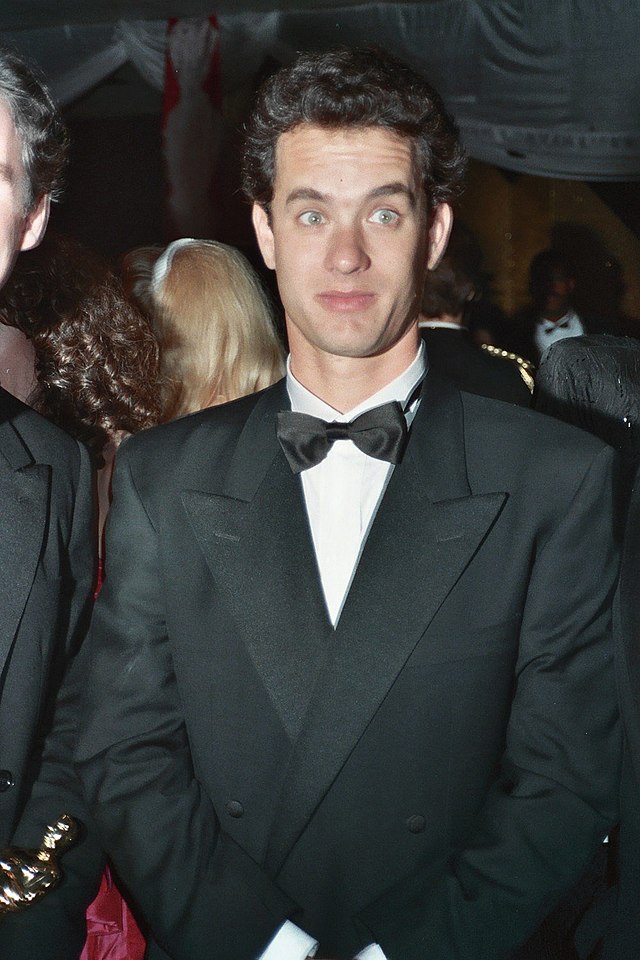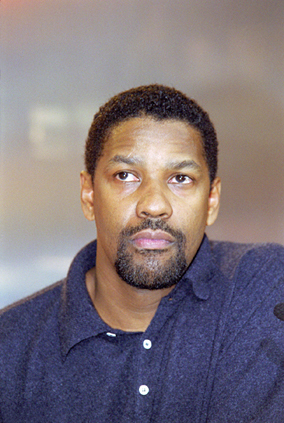 |
I was unrecognizable to myself.
Saw my reflection in a window and didn't know my own face.
Oh brother are you gonna leave me wastin' away
(from Philadelphia, by Bruce Springsteen)
This past weekend, one of the local digital channels dedicated to showcasing old classics rebroadcasted Philadelphia, Actor/Comedian Tom Hanks is a stunning professional on screen. From a humdrum start on one-season sitcom Bosom Buddies, Hanks would explode on the cinema scene, and enjoy the well-deserved distinction of two Best Actor Oscars in a row only a decade later, for Philadelphia and then Forrest Gump.
In his first Oscar-winning turn, he played lawyer Andrew Beckett, terminated from a prestigious law firm. A closeted homosexual who comes out because he contracted AIDS, Beckett files a wrongful termination lawsuit against his former employers, claiming that they fired him because of his sexuality.
After two decades, the film offers a commendable, realistic ensemble, including the law firm's senior partner under lawsuit, played by Jason Robards. Avoiding the board stereotypes of malevolent and angelic, the movie treats both sides of the case with respect and dignity. In a compelling opposite performance, Denzel Washington plays Beckett's attorney, Joe Miler, himself homophobic, yet coming to grips with the reality that he is representing a human being who claims wrongful termination and gets his day in court.
The film removes much of the negative reporting surrounding homosexual conduct, yet during the final moments of the courtroom scenes, Beckett acknowledges the risky behavior he engaged in, including anonymous, casual sex in porn theaters show-casing gay sex. Removing hype and prejudices, the films exposes then as well as now just the frustrations of men and women struggling with marginalized sexual feelings, and the consequences of acting out on those sentiments.
In one scene, Beckett is dancing with his partner Miguel Alvarez, played by upcoming star Antonio Bandares. Two great actors making the most out of another act: that two men could create the conjugal love between one man and one woman. What comes across to the audience, however, is no longer the offense or the novelty of the "gay party", but rather the sad and unseemly attempts at normalcy. Two men, two "lovers" dressed as naval officers, come off as only two men trying to fulfill themselves in something that is not true. A chorus of gay men singing "Mr. Sandman" is no longer provocative or disturbing, but pathetic, even regressive. What kind of love can a man expect from another man?
 |
| Tom Hanks in 1989 (Alan Light) |
Still, the movie did a great job of presenting these hurting men and women, individuals still trying to establish an identity in the world, grappling with societal views diametrically opposed to theirs, which ignored their humanity while shaming them for their perverse inclinations. Beckett has a loving family, both a mom and a dad who have not abandoned him, but stand with him until his death. The even-handed treatment of straight people dealing with homosexual conduct, and the people who identify with it, comes through with relevance and insight. Even the attorney representing Beckett's former law firm, played by a tough but fair Mary Steenbergen, winces after confronting the wronged lawyer with a mirror on the witness stand.
At the end of the movie, after Miller wins the case (and millions of dollars in back pay and punitive damages), Beckett's family and friends witness their loved one's life ebb away. In a celebration of life at the Beckett family's home, the audience watches old movie clips of the young James Beckett, a boy as warm and buoyant as any other child. From here, I depart from the argument that this film is a gay-friendly paean celebrating homosexuals and applauding the courage of men and women who step out and identify with homosexual conduct. This is a film which recognizes the fraught realities of broken people trying to make sense of uncertain motives and inescapable consequences. All the indicators in the film then point to the grander problems now.
After twenty-one years, with the upheavals in the court systems and the media promoting gay marriage and homosexuality as an ideology, startling facts about homosexual conduct have not changed. The prevalence of disease among homosexuals, figured in the steady and painful decline of main character Beckett, plus the dysfunction of same-sex partners looking for love has not disappeared. Granted, in the movie Beckett's attorney Miller overcomes many of his prejudices about Beckett, acknowledging not only his reticence about homosexuals, but coming to grips with the fact that no matter how one lives, he still has feelings, he still carries hurts. After their final preliminary meeting before Beckett's direct and cross examination, Miller meets a frail man who loves opera, who sings along with key refrains, who dances.
He goes home, hugs his baby daughter, and lies down next to his wife, comforts her as she sleeps. The contrast could not be more striking. Beckett has no family, no generative legacy. Miller has a family, a child he brought to life with a loving wife. Even if homosexuals can marry, they can never have children, build a legacy, participate in the warmth and wonder of blessed domesticity. For all the glories of men and women "being themselves", homosexuality has very little to offer beyond disease, dysfunction, and death. Even though the films end with a multi-million dollar judgment against Beckett's former employers, they vow to appeal, and he still dies at the end.
 |
| Denzel Washington (Faulkenauge) |
The audience can sympathize with a man dying, yet his death rests on his choices, his taking risks, as lawyer Steenbergen would remind him the next day. The deeper tragedy follows from the decisions of an admirable lawyer behaving in an unseemly fashion, suffering an unsavory demise. Putting aside Hollywood's inevitable neglect of the un-cinematic statistics and reports which detail the profligate problems associated with homosexuality, Philadelphia demonstrates that real brotherly love cannot be found in brothel-like interactions or same-sex couplings.
Philadelphia twenty-two years later, praised because of its sympathetic portrayal of homosexuals and their victimized status in a straight society, gets props for giving a straight portrayal of the perilous and discouraging realities of homosexuality, and the glowing glories of men and women who have families and grow.
Night has fallen, I'm lyin' awake,
I can feel myself fading away,
So receive me brother with your faithless kiss,
Or will we leave each other alone like this
On the streets of Philadelphia.
It's great that you are getting thoughts from this post as
ReplyDeletewell as from our dialogue made at this time.